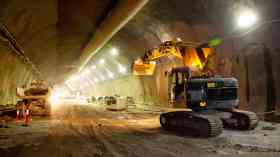Sue Robb of 4Children talks to Julie Laughton and Alison Britton from the Department for Education about the role of childminders in delivering the 30 hours free entitlement.
‘Slowing the Flow’ scheme helped to avoid floods, analysis shows
A natural flood management scheme implemented in Pickering provided important protection for the town over Christmas 2015, new analysis has shown.
The ‘Slowing the flow’ scheme was set up after the Yorkshire town faced four serious floods over a 10 year period, with floods in 2007 causing around £7 million worth of damage.
It involved conventional upstream flood storage with a wide range of measures designed to work with nature to hold water on the land and slow the speed at which it enters the river system. Additionally, 40,000 trees were planted, local heather moorland was restored and over 300 leaky dams were built in forest and moorland drains and streams in the upper catchment.
The scheme reportedly reduced peak flow by around 15-20 per cent during December 2015 and helped to mitigate the flood risk posed when a total of 50mm of rainfall fell over a 36 hour period.
John Curtin, Environment Agency executive director of flood risk management, said: “Natural flood risk management measures when used alongside more traditional flood defences can make an effective contribution to reducing flood risk, as demonstrated in Pickering. They can also deliver more benefits than just reducing flood risk – such as improving water quality, preventing erosion and in some cases storing carbon.”
Jeremy Walker, ‘Slowing the Flow’ Partnership chairman, said: “We wanted to understand fully whether our efforts in recent years in trying to hold back and store water in the catchment prevented flooding in Pickering in the days after Christmas. This analysis by our hydrologists confirms that some flooding was avoided, although the measures were not fully tested. The key finding for us is that they appear to be working as expected and reducing the peak flood flow by up to 20 per cent.
“This is good news for the town, although we need to remember that the measures installed have their limits and would not be enough to prevent flooding in the event of rainfall on the scale experienced for example in 2007.”
Company Focus
The Isuzu D-Max is a rugged workhorse that can fulfil a myriad of purposes as both a business and personal vehicle. Consequently, the D-Max is a particularly popular choice when it comes to farming, construction, and trade industries. Uncompromising in nature, the D-Max strives to be the ideal companion for many business needs.
Event Diary
UKREiiF has quickly become a must-attend in the industry calendar for Government departments and local authorities.
The multi-award-winning UK Construction Week (UKCW), is the UK’s biggest trade event for the built environment that connects the whole supply chain to be the catalyst for growth and positive change in the industry.
Supplier Profiles
Geo Energy
At GeoEnergy Design, we're on a mission to disrupt the traditional way heating and cooling ha
Latest Features
Professor Harith Alani, director of the Knowledge Management Institute at the Open University explains how AI can be used for good and bad.
Alex Lawrence, head of health & social care, techUK sets out techUK’s Five Point Plan for CareTech.

















